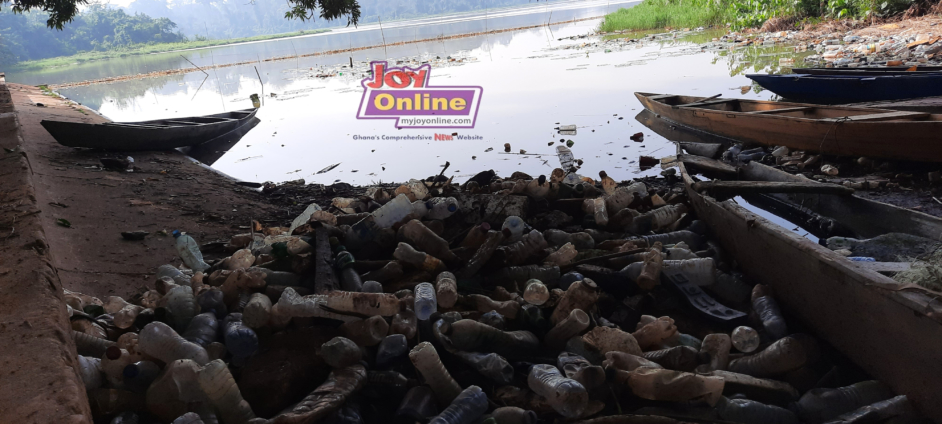In 2050, imagine a child's first encounter with the ocean being marred by a mosaic of plastic debris, rather than the natural awe of waves and marine life. This vision, far from a dystopian fiction, is an impending reality if our global community continues the rampant production of plastic without addressing the underlying issues.
We are teetering on the brink of a 'plastic apocalypse', where our oceans, air, soil and even human bodies are not just contaminated, but fundamentally altered by the ceaseless flood of plastic waste. It is imperative that we not only mop up the deluge but also turn off the tap of plastic production, ceasing to feed the ever-swirling vortex of disposability that threatens to engulf our planet in a synthetic shroud.
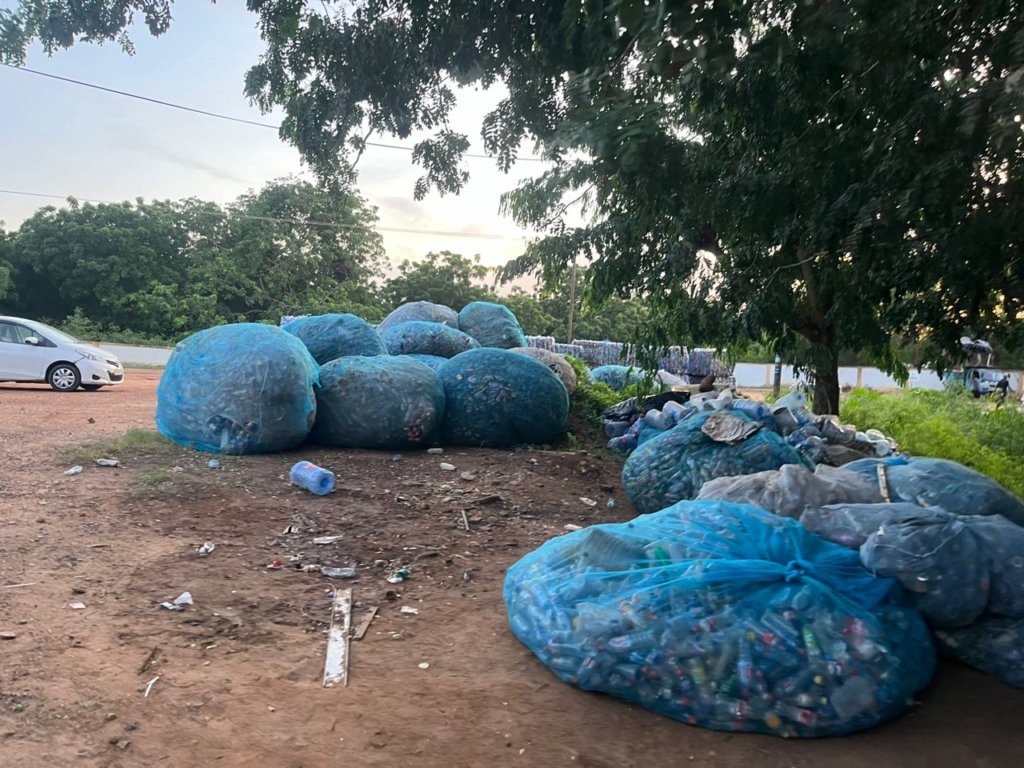
Each year, about 380 million tons of plastic are produced globally, a staggering figure that underscores the sheer scale of this polycrisis. The impact is pervasive, with significant amounts of plastic waste ending up in our oceans, breaking down into microplastics that enter our food chain and ecosystem, and significantly disrupting biodiversity. The heart of the matter lies not just in the environmental devastation but also in the profound public health implications. Research by the Center for International Environmental Law (CIEL) has highlighted the detrimental effects of plastic production and disposal, which contribute to greenhouse gas emissions and release harmful additives into our environment.
The production process of plastics is as harmful to human health as the use and disposal process. Up to 90% of plastics are fossil-fuel based and are mixed with a cocktail of pollutants, toxins and forever chemicals that people along the production process are continuously exposed to. This has the tendency of bioaccumulating as well as posing risks of cardiovascular and neurological diseases to workers and fenceline communities. These activities are not merely unsustainable; they are setting the stage for a public health disaster, fueled by our continued dependence on fossil fuels that feed the plastic production pipeline.
The impact of plastic pollution is not uniform; it hits hardest in the Global South, where environmentally sound and even regular waste management infrastructure are often inadequate. In these regions, rivers and coastlines are frequently transformed into de facto landfills, and the story of Ewura Esi, a young girl from a coastal community in Ghana, West Africa, illustrates this starkly. Growing up on a beach increasingly littered with plastic, Ewura Esi has seen the fish that her community once relied on for both food and income dwindle, their habitats choked by waste.
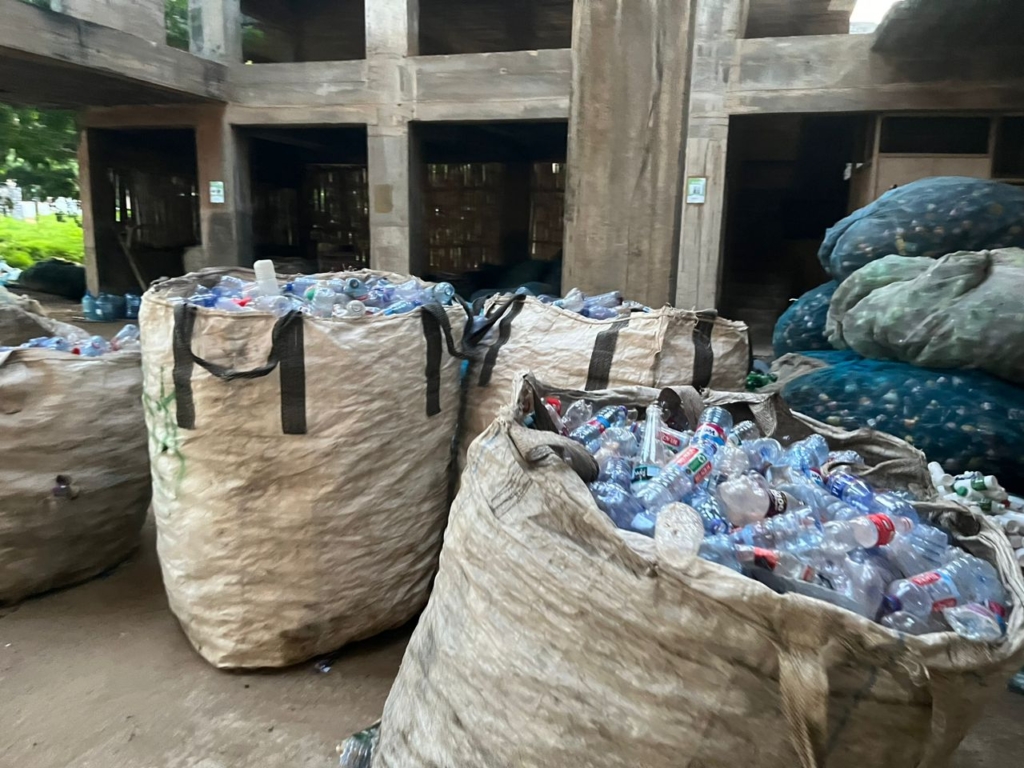
Her family’s struggle is a microcosm of a global crisis where environmental degradation rapidly escalates into a socio-economic disaster. Yet, while industries continue to prioritize profits, little thought is given to the profound impacts on the vulnerable, like Ewura Esi. Profits are narrowly distributed, benefiting a few, while the burdens are disproportionately borne by innocent children who face the consequences of decisions they had no part in making.
This scenario starkly calls for a shift in global and industrial practices, urging a prioritization of human and environmental well-being over economic gains, and highlighting the need for a more conscientious approach to protect and preserve the joys and securities of childhood in these affected communities.
Addressing this crisis requires a comprehensive global response. A crucial step would be the establishment of a global treaty on plastics, encompassing the entire lifecycle of plastic products from ideation to production to final disposal.
Such a treaty should enforce strict limits on new plastic production, promote sustainable alternatives in reuse systems, and mandate rigorous recycling standards to protect both environmental and human health. Encouragingly, some nations and communities are pioneering the path toward sustainability.
For instance, countries like Rwanda and Kenya have implemented stringent bans on single-use plastic packaging, and their efforts are paying dividends in the form of cleaner landscapes and improved public health outcomes. These examples not only highlight the feasibility of such measures but also demonstrate their tangible benefits.
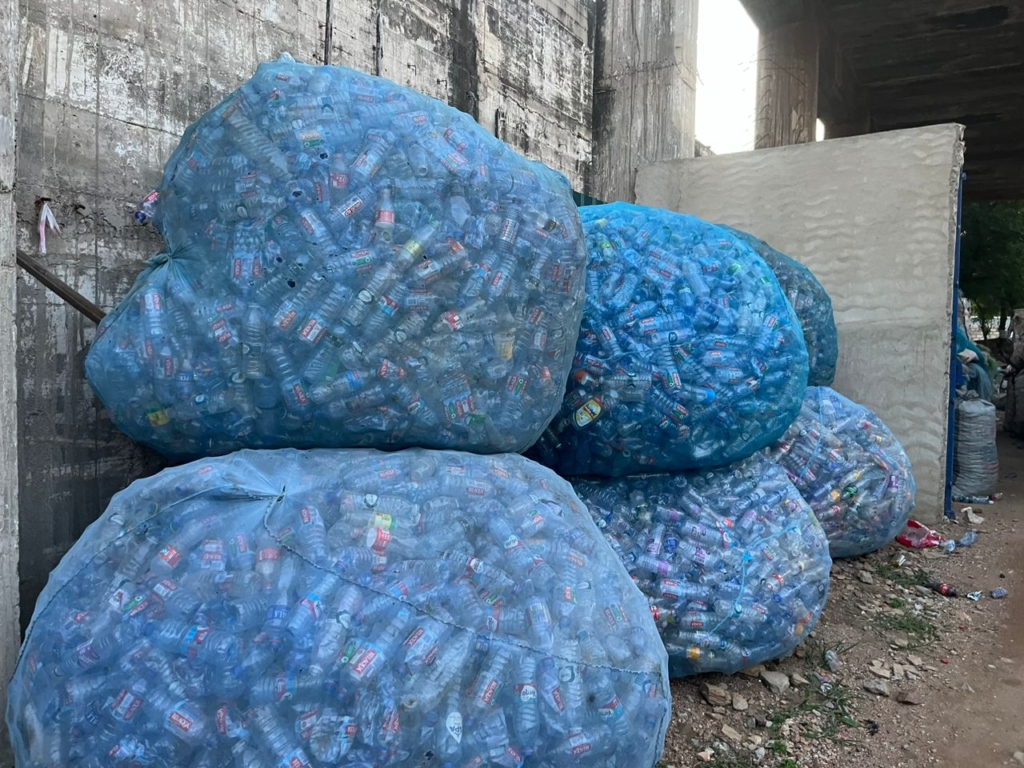
The shift towards a sustainable future is not solely in the hands of policymakers and industry leaders; consumers also play a significant role and must hold these industries accountable. By choosing reusable and sustainable products, consumers can drive demand for innovations in plastic alternatives and contribute to a cultural shift away from disposable plastics.
This collective action enhances consumer power to demand greater responsibility from corporations, ensuring that their practices align with the environmental values necessary for our collective future. The contrast between potential futures - one of continued plastic proliferation and another of environmental recovery and sustainability - is stark. It serves as a poignant reminder that our choices today will define our world in 2050.
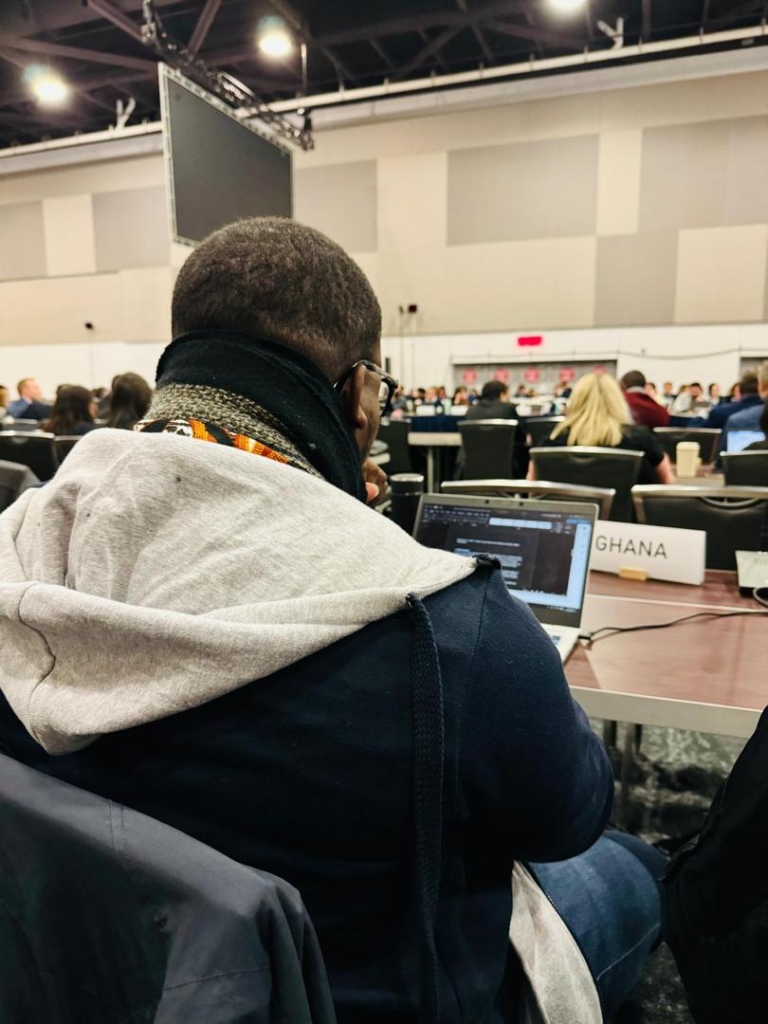
The narrative of our future need not be a dystopian tale of environmental ruin. Instead, it can be a story of resilience and transformation, marked by a collective commitment to sustainability and well-being. We are at a crossroads, and the path we choose will resonate through generations.
But all is not lost, we have a global effort to address plastic pollution through a coordinated global effort in the INC process which has just ended its fourth session in Ottawa, Canada, that was marred with corporate interests from the blatant public display of pro-plastic profit messaging to sneaky links in negotiation rooms and deliberate attempts to derail the negotiation process.
Not only does this fly in the face of good faith in negotiations, it also presents a case of conflict of interest where the cause of the problem is trying to find a solution whereas the solution stares them in the face; a moratorium on plastic production or a reduction in plastic production by at least 12% to 17% per year, starting in 2024.
This is a compelling call to everyone, from global leaders to individuals, to act with urgency and purpose. We must forge a future where our children inherit a planet defined not by the remnants of our irresponsibility but by the legacy of our stewardship.
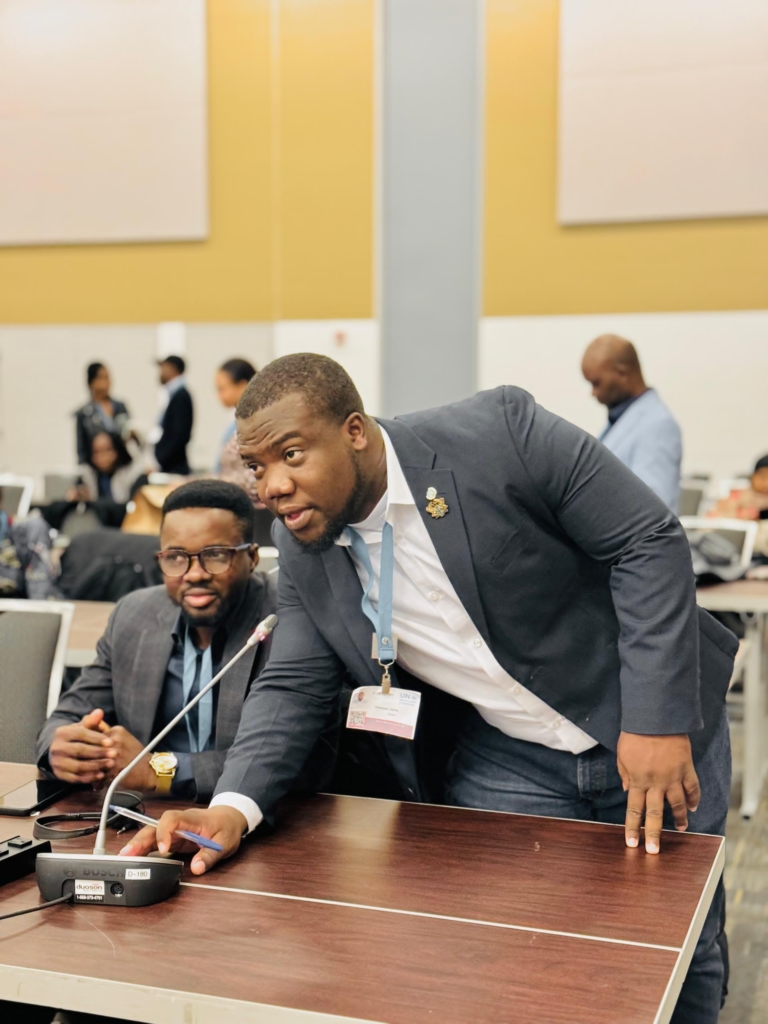
The 'plastic apocalypse' is not yet our reality; with decisive action, it never needs to be. Let us strive for a 2050 where the oceans are teeming with life, not plastic, and where communities like Ewura Esi’s flourish, rather than falter, under the weight of pollution and economic greed.
In order to achieve this new reality; we need to hold the leaders of Africa to a strong and ambitious plastics treaty by demanding:
- Global plastic production reduction that starts with the measures that can deliver a phasedown of plastic production to sustainable levels compatible with human health, human rights and the environment through the development of global, legally binding, production freeze and phasedown targets by a specific point in time.
- Identification and regulation of toxic and hazardous chemicals and monomers/oligomers/polymers of concern.
- Guaranteed inclusion, integration, just transition and accessibility of waste pickers and frontline communities into national waste management policies and the Global Plastics Treaty process.
- Harmonized standards and guidelines for environmentally sound plastic waste management.
- End of waste colonialism and dumping on the African continent.
- Strengthened standards and guidelines for EPR (Extended Producer Responsibility) that are mandatory, integrates waste pickers and other waste workers and respects the waste hierarchy by prioritizing reuse over recycling.
- Robust financial mechanism to support the effective Implementation of the treaty.
- Support for the Institution of a Dedicated Global Scientific body for the treaty.
- Prohibition of dangerous practices such as open burning, incineration, firing in coal-fired power plants and other waste-to-energy processes, co-processing in cement kilns, and chemical recycling to protect human health and the environment.
Authors: Samuel Mbura, Jacob Johnson Attakpah & Nana Minta Asiedu Ampadu-Minta
Latest Stories
-
Boakye Agyarko urges reforms to revitalise NPP after election defeat
3 minutes -
Finance Minister skips mini-budget presentation for third time
4 minutes -
‘ORAL’ team to work gratis – Ablakwa
12 minutes -
Affirmative Action Coalition condemns lack of gender quotas in Transition, anti-corruption teams
21 minutes -
December 7 election was a battle for the ‘soul of Ghana’ against NPP – Fifi Kwetey
22 minutes -
Social media buzzing ahead of Black Sherif’s ‘Zaama Disco’ on December 21
37 minutes -
Afenyo-Markin still suffering from the massive defeat – Fifi Kwetey
44 minutes -
Retain Afenyo-Markin as NPP leader, he has experience – Deputy Speaker
55 minutes -
Kufuor didn’t leave behind a strong economy – Fifi Kwetey
59 minutes -
It won’t be business as usual, remain humble – Fifi Kwetey to party members
2 hours -
Ebenezer Ahumah Djietror appointed as new Clerk to Parliament
3 hours -
Actress Benyiwaa of ‘Efiewura’ TV series dead
3 hours -
Ashanti Regional Chief Imam dies at age 74
3 hours -
Africa Arts Network calls for tax reform to save Ghana’s theatre industry
4 hours -
SSTN Ghana Chapter reaffirms commitment to economic growth under new leadership
4 hours

